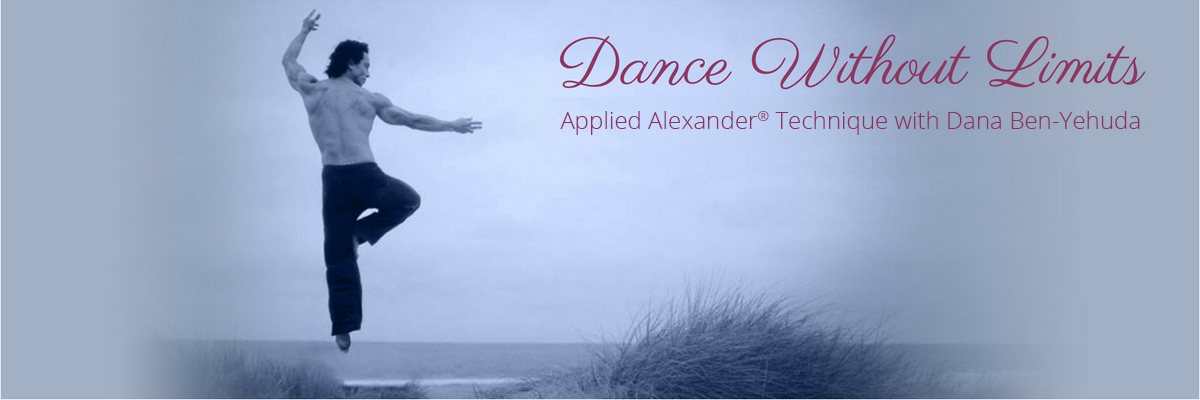Wherever You Are, You’re Up!
When you are centered and grounded in your body you are centered and grounded in your Self.
Do you want to try and prove it to yourself?
Try slumping in your chair. Let your chin come rest on your chest, if your neck will stretch that far. Let your arms fall into your lap. Let your back collapse.
Now try and sing The Star Spangled Banner in a bright and sprightly voice. It doesn’t work very easily.
It is hard to be up when you’re down.
And it’s hard to be down when you’re up.
One of the things I tell all my students is, “Wherever you are, you’re Up!”
That’s because in Alexander terms, “Up” means up the spine and out the top of the head. Therefore, “Up” is a relative term to you, wherever you are. And given that, then truly wherever you are there is an Up and it is within you!

We literally cannot separate mind from body, and mood and mind and spirit are intertwined.
Think about someone who is happy. What do you see? Are they smiling? Are the corners of their mouth turning up? I bet they are not frowning and tears are not rolling down their face. It seems simplistic, but it’s very true. We read people by their expression and also by their body language, and we do it all the time.
When an actor walks across the stage, before he or she says a single word, we already know if they are angry or sad, elated or dejected.
Children do this even better than adults; they read their parents and know exactly when to approach for some extra money for the movies, or extra treats after school.
As a way of Being, it is helpful to foster a habit of being cheerful.
And it is easier to be cheerful when we are upright and balanced.
Our very language tells us this is true. When someone is upset, he or she is “bent out of shape.” When they’re angry, their “nose is out of joint.” When they’re happy, they’re “higher than a kite” and if they’re dreamers, their “head is in the clouds.” When they’re tense, they “have their back up.”
Let’s continue with this experiment a little. Imagine yourself walking tall with your head held high. It is the antithesis of how you would portray someone who is depressed, a sad sack, feeling low. And in your real life, not imagined, if you dance and run and play a game of soccer, your body will have a natural sense of vibrancy and energy. Sit around for too many days in a row playing with the television clicker and you’ll discover why the term is couch potato and not, couch lightening bolt.
How would you portray someone who is unsure of him or herself? Would you walk the same as if you were showing someone who just won the school prize for track and field?
You could go on and on creating a very long list like that, but I’m sure you get the point.
One very good way to improve your mood is to improve something in your body. Think about a happy day by the beach or on vacation. Imagine the warm sun and a nice breeze blowing off the ocean. The sound of the waves is soothing and steady. Now stop and notice; do you feel more relaxed already? Did you let out a big breath?
It’s all connected, mind and body and psyche. Your body is the one thing that is always with you. It’s meant to support you getting around in life to do the things you want to do. Your sense of it can be light and easy, not a heavy thing that gets dragged along like a big rock. It is the experience of our whole psycho-physical selves, moment by moment, that matters. I hope this interests you and I welcome you to try the Alexander Technique!

